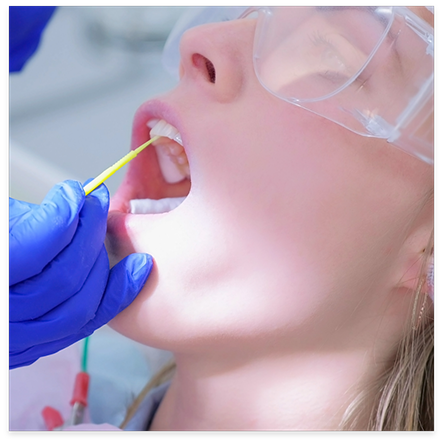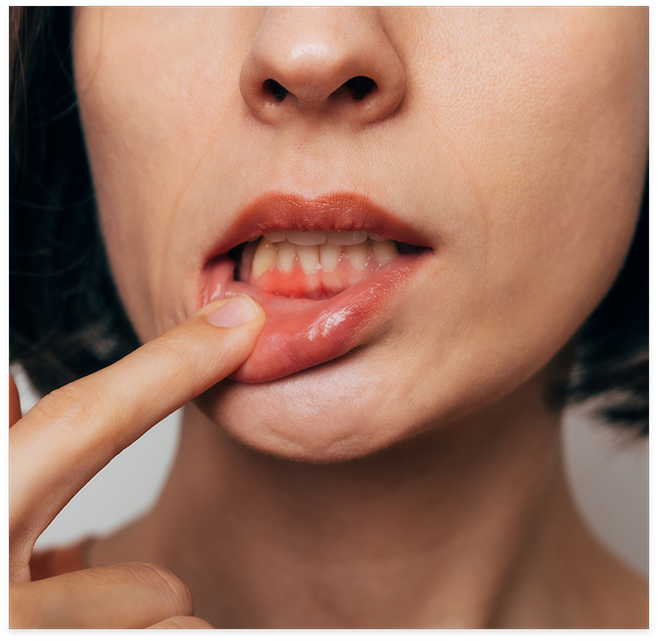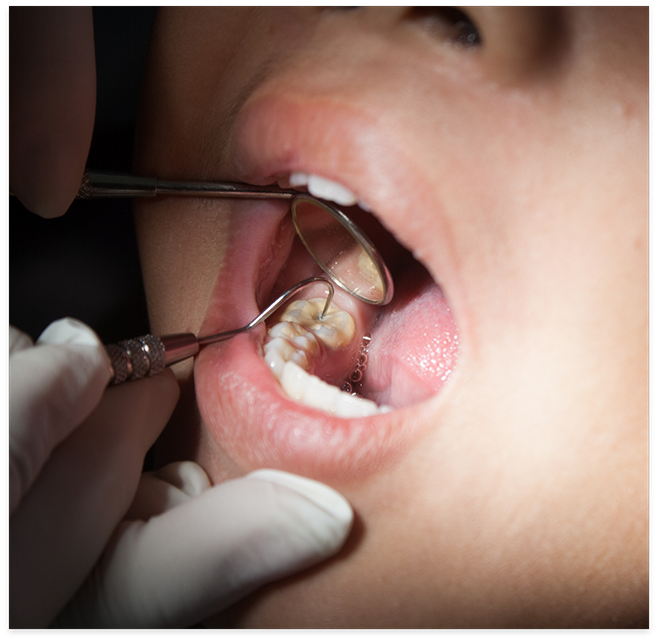Preventive Dentistry Cottonwood Heights
How We Keep Your Smile Looking & Feeling Great
Preventive dentistry in our Cottonwood Heights, UT dental office emphasizes the importance of ongoing hygiene procedures and daily practices to prevent tooth decay and other dental diseases. Effective preventive dentistry combines at-home oral care with chairside treatments and counseling by dental professionals.
For example, the American Dental Association (ADA) recommends a minimum of two dental appointments each year for a professional checkup and cleaning for the management of any developing conditions. Adhering to this recommendation can help your dentist stop dental disease in its earliest stages, protecting
Why Choose White Peak Dental for Preventive Dentistry?
- Open to Dental Patients of All Ages
- Locally Owned Private Dental Office
- Accepting of All Dental Insurance
Dental Checkups & Cleanings

The American Dental Association recommends visiting your dentist for routine checkups and cleanings once every six months. During your appointment, our team will conduct a thorough examination of your teeth and gums, including conducting a routine oral cancer screening. This will allow us to spot the early signs of any dental concerns, allowing us to quickly address them before they have a chance to get worse. To finish, a skilled dental hygienist will thoroughly clear away all plaque and tartar from the surface of your teeth and along your gumline, as well as polish and floss your teeth. This will leave your grin feeling refreshed until your next checkup and cleaning.
Learn More About Dental Checkups & Cleanings
Preventive Dentistry Strategies

Preventive oral care for children and adults includes many in-office and home care strategies, like:
At-Home Oral Hygiene

The most important prevention technique is brushing and flossing at least twice a day to remove dental plaque, a film-like coating that forms on your teeth. If not removed, plaque can build up and produce dental tartar, a hardened, sticky substance with acid-producing bacteria that cause tooth decay and lead to gum disease.
Fluoride Use

Fluoride strengthens teeth and prevents tooth decay. Fluoride treatments are provided in dental offices, and dentists recommend using fluoridated toothpaste and mouth rinses at home. The mineral is absorbed easily into tooth enamel, especially in children’s growing teeth. Once teeth are developed, it strengthens tooth structure, making them more resistant to decay. Fluoride also repairs or remineralizes areas in which decay has already begun, reversing the process and creating a decay-resistant tooth surface.
Diet

A balanced diet is a dental health essential. Foods with sugars and carbohydrates feed the bacteria that produce dental plaque, while calcium-poor diets increase your chances of developing gum (periodontal) disease and jaw deterioration.
Regular Dental Visits

Since most dental conditions are painless at first, if you don’t regularly visit your dentist, you may not be aware of dental problems until they cause significant damage. For the best results, schedule regular dental checkups every six months or more often if you’re at higher risk for oral diseases. Your dentist should also perform oral cancer screenings to check for signs of abnormalities. Especially for children, monitoring their oral growth should be part of dental evaluations.
Gum Disease Treatment

Gum disease is one of the most common oral health problems in the world, affecting one out of every two adults in the United States, according to the Centers for Disease Control and Prevention. Often the result of a buildup of tartar and bacteria within the mouth, gum disease can lead to the erosion of the supportive structures of the teeth (like the jawbone and gums), ultimately causing tooth loss when left untreated. At White Peak Dental, we offer scaling and root planing, a two-step treatment to stop the infection from spreading and reverse or control your symptoms.
Fluoride Treatment

Fluoride is a naturally derived mineral that’s produced by rocks and found in a variety of places in nature, like fresh fruits and vegetables, the air, and soil. However, most people are familiar with it because it’s also added to local tap water and oral hygiene products like toothpaste. This is because fluoride is a known cavity prevention method, as it helps build and strengthen tooth enamel that protects against decay. If you don’t receive enough fluoride in your diet, we can supplement it by placing a fluoridated gel on your teeth after your cleaning.
Family Dentistry

At White Peak Dental, we love seeing patients of all ages, from parents and grandparents to children! We offer a comprehensive menu of services to take care of oral healthcare needs at every stage of life and are happy to see children with special needs. We often schedule families for block appointments as well, allowing you to consolidate your schedule by planning all of your loved ones’ dental appointments at the same time!
Learn More About Family Dentistry
Nightguards for Bruxism

Bruxism, also known as the nightly grinding and clenching of teeth, is a common condition that typically results from stress or bite misalignment. With time, the constant gnashing, clenching, and grinding can take a toll on your jaw joints and lead to a variety of other uncomfortable symptoms, like lockjaw. It could also wear down your teeth, putting you at a greater risk of developing serious oral health problems. To protect both your teeth and jaw joints, we can craft a customized nightguard that will cushion them as you sleep.
Athletic Mouthguards

Do you participate in a local sports team or is your child on their school athletics team? Investing in a customized athletic mouthguard can help prevent you or your child from knocking out a tooth or a jaw injury, minimizing the chances that you end up requiring emergency dental care.
Dental Sealants

Dental sealants are an excellent way to prevent cavities. They’re clear coatings that are brushed over the biting surface of molars and hardened, acting as umbrellas to keep food debris and plaque from collecting in the pits and grooves of the teeth and ward off decay.
